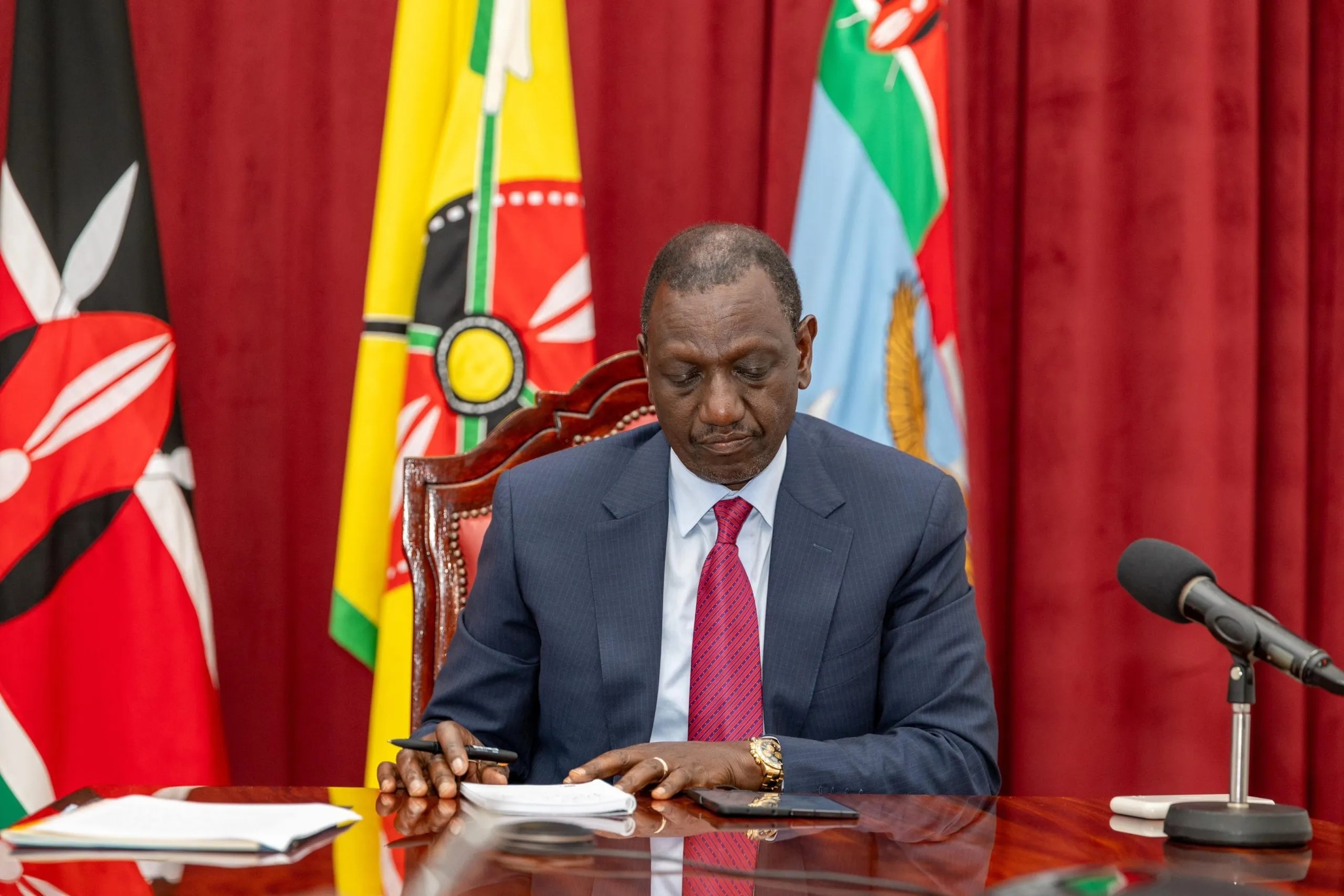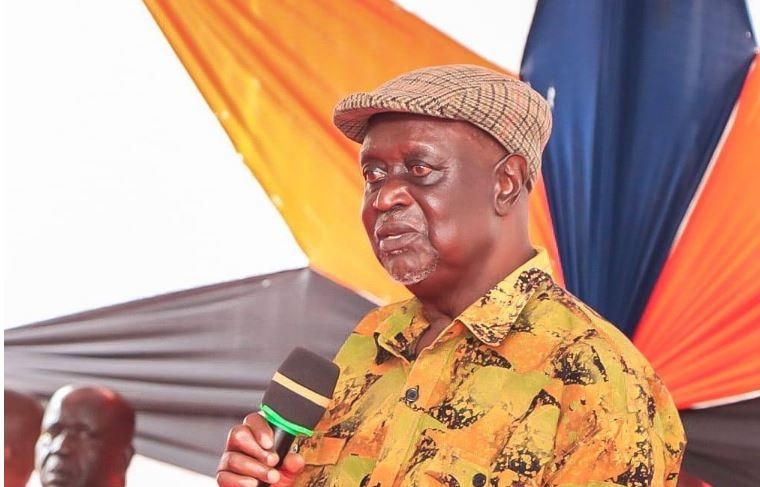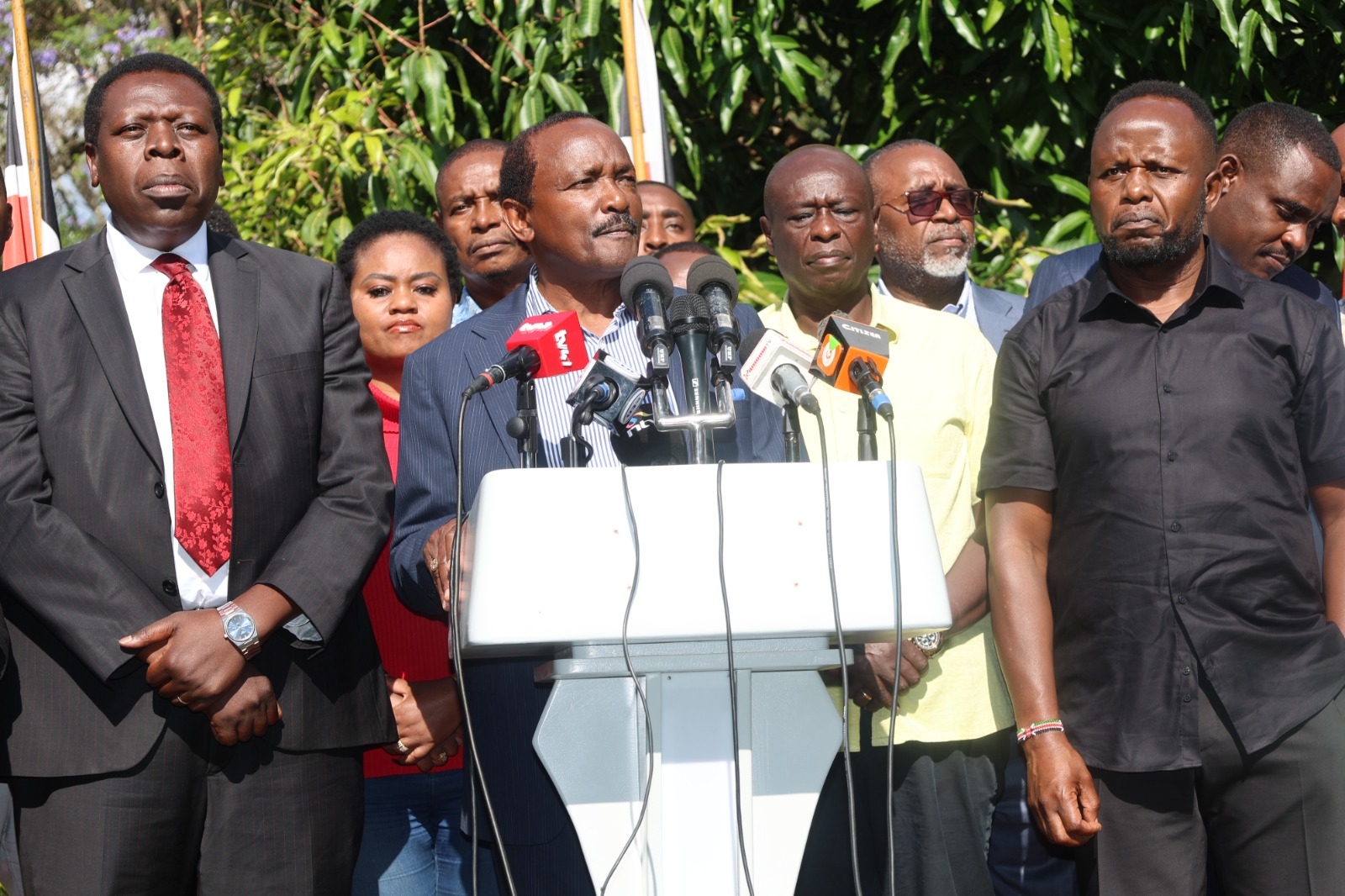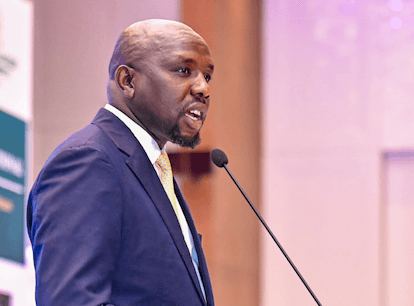The national government will use an alternative route to transport the more than 60,000 tonnes of fertiliser destined for Ethiopia after floods swept off part of the Lamu-Witu-Garsen road.
Transport Cabinet Secretary Kipchumba Murkomen said they will facilitate the evacuation of the consignment through an alternative route.
The CS, who spoke when he inspected the damaged road, said repair works will begin in earnest.
For the past week, transport along the Garsen-Witu-Lamu highway has been affected after floods swept away about two kilometres of the road.
Last Saturday, Kenya National Highway Authority (Kenha) closed the road following the heavy downpour experienced upstream, resulting in the Tana River breaking its banks.
Three sections of the road between Gamba police station and Lango La Simba have been rendered impassible.
The Ethiopian government on Saturday received the first shipment of 60,000 tonnes of fertiliser imported through the Port of Lamu from Morocco.
The closure of the road coincided with the importation of the fertiliser.
“We will do all in our power to facilitate the shipment of goods, including the 60,000-tonne fertiliser cargo destined for Ethiopia, despite a damaged section of the Lamu-Witu-Garsen road due to floods,” Murkomen said on Wednesday.
At least 2,400 trucks are needed to transport the fertiliser imported through the Lamu port.
“The commodity we have is very important and we have to deliver it on time in the next 10 days. The success in delivery of this cargo is very important for our use of this corridor, which we are operating with speed to utilise,” he said.
During a meeting with stakeholders and the leadership of Lamu county, Murkomen said part of the long-term solution is to fast-track the completion of the 256km Lamu-Ijara road and ensure it is completed by February 2025.
Ethiopia Maritime Authority deputy director general Firaol Tafa appreciated the efforts and commitment of the Kenyan government.
Present at the meeting were Lamu Governor Issa Timamy, Kenha director general Kung'u Ndung'u, his Lappset counterpart Stephen Ikua, Kenya Ports Authority managing director Captain William Ruto and security teams.
On Saturday, an Ethiopian-flagged ship, MV Abbay II, started offloading 60,000 tonnes of bulk fertiliser at the Lamu port, destined for southern Ethiopia.
KPA's Captain Ruto said this is the largest consignment of bulk fertiliser to have docked in Kenya, specifically the Port of Lamu.
“Indeed, this is a testament to many years of planning, dedication and hard work towards positioning the Port of Lamu as a logistics hub in the region,” he said.
Last weekend, Ethiopia’s Minister of Agriculture Dr Girma Amante said the Lapsset corridor is a transformative project critical for Africa's ambition to establish a continental free trade area, as it supports the free movement of goods, services and people across borders.
“Ethiopia is one of the fastest-growing economies in Africa, given the size of its population, as the second-most populous country in Africa. Therefore, it is a necessity to diversify our access to the seaports," Amante said.
In the last three years, Ethiopia has achieved agricultural Gross Domestic Product (GDP) growth of six per cent annually, and consequently, there was an increase in the volume of imports of agricultural inputs products.
“To take fertiliser as an example, last season we imported 1.3 million tonnes of fertiliser, whereas this season it has increased to 1.94 million tonnes, which is an increase of 50 per cent,” he said.
Amante said the docking of the Ethiopian vessel in Lamu port carrying fertiliser for the southern part of Ethiopia will have a significant impact to timely delivery to their farmers.
“As this is the first test operation, we have to closely support the process and document the lessons to improve and optimise our upcoming operations. We have to do our level best to make the logistics operation of the corridor feasible and cost-effective,” he said.
Lappset Corridor Development Authority director general Stephen Ikua said the importation of Ethiopian cargo through the Lamu port is a realisation of the dream intended by the governments of Kenya, Ethiopia and South Sudan.
“This is a time that we are seeing the realisation of the dream of what the three governments intended to do; prosperity and development within the region. We have been bedevilled by a number of problems that can only be settled if we have these kinds of projects. They did it over 10 years ago and it has taken us a decade to see the realisation,” he said.
Ikua assured the Ethiopian delegation they would work round the clock to ensure the cargo is delivered on time.
“We have no excuse, apart from now working on the corridor and the other facilities that require to be done so we have a smooth movement," he said.
"And as we say, this is a test and we want to go down on a checklist and get all the issues that will be coming about and we will be able to address them.”



















